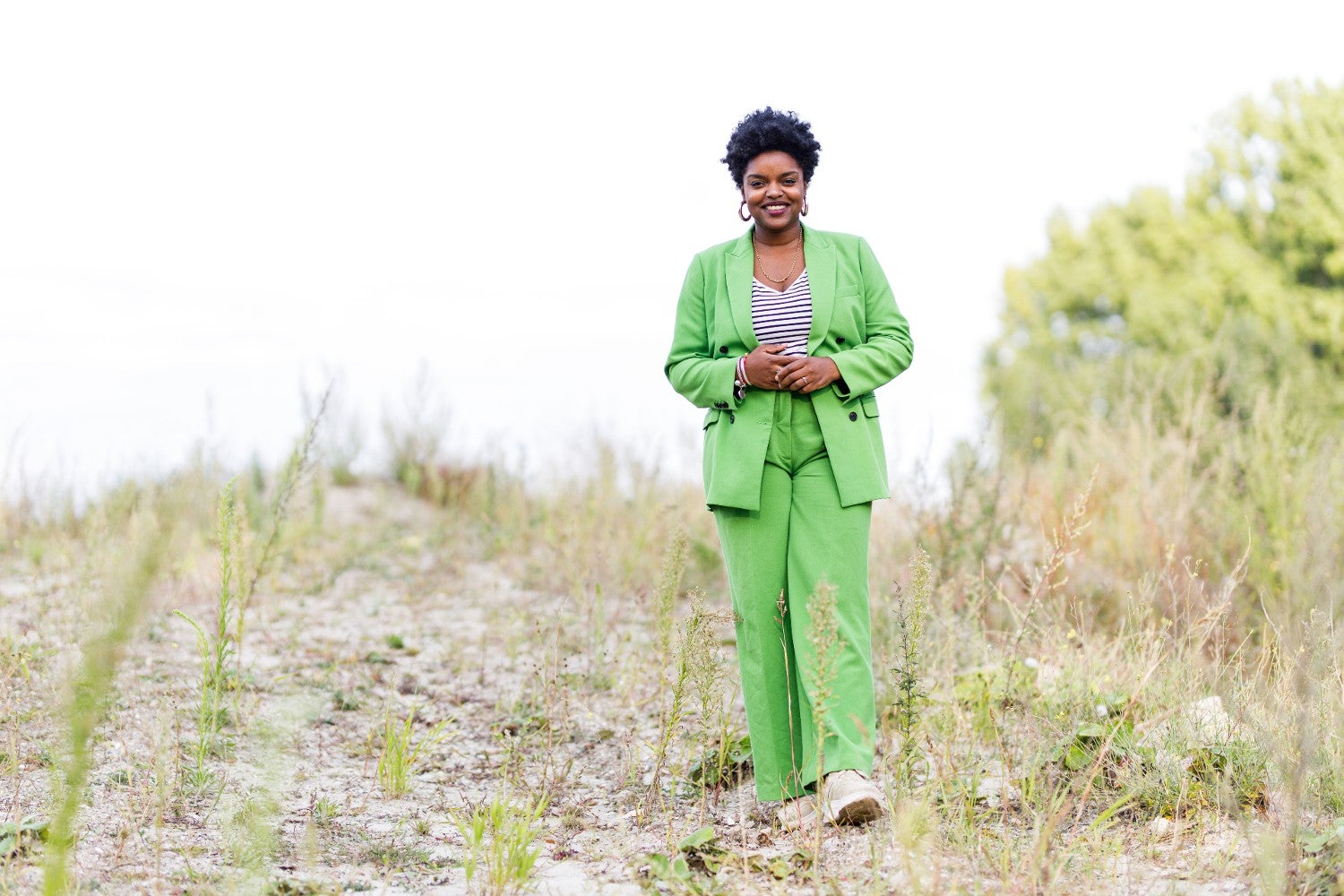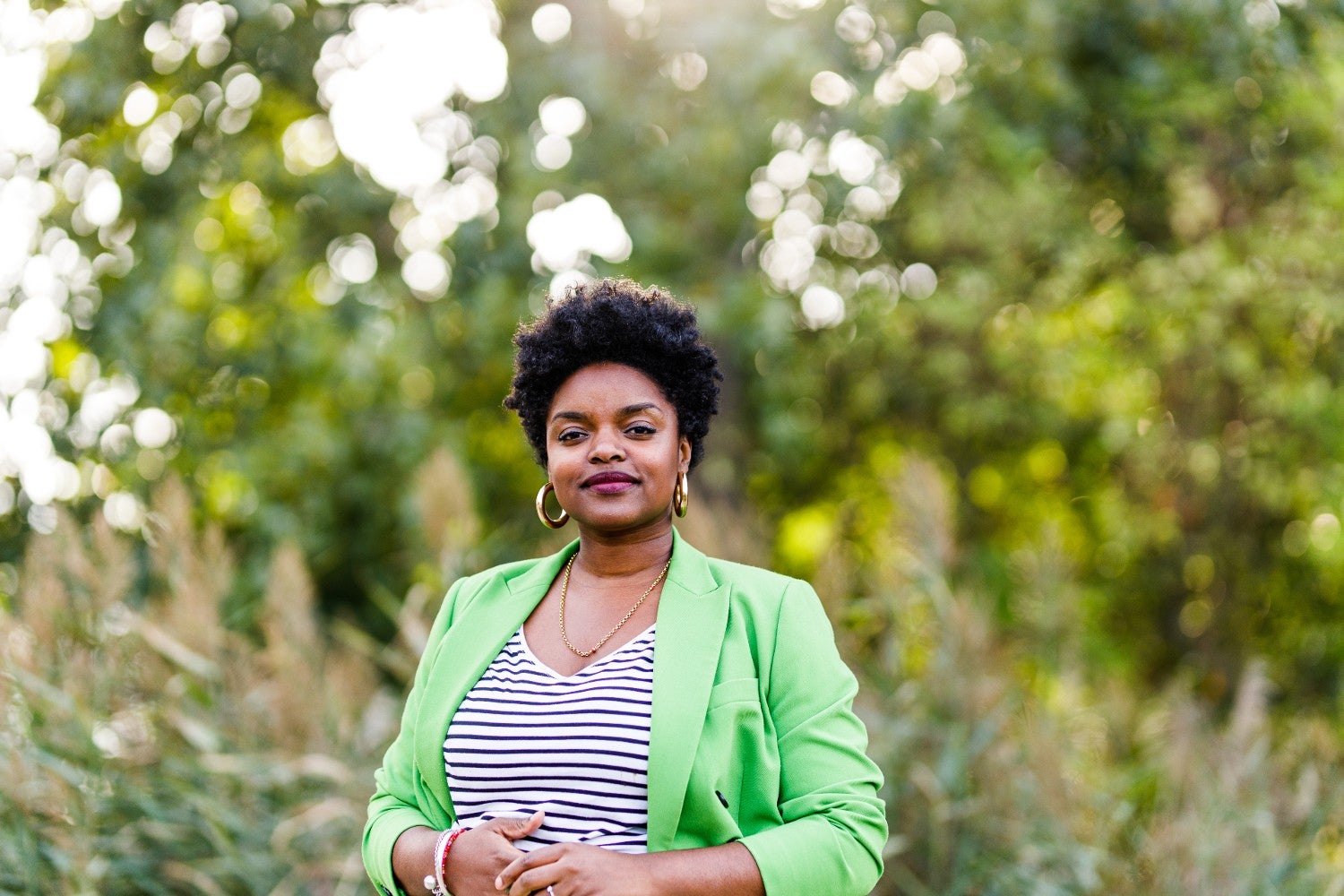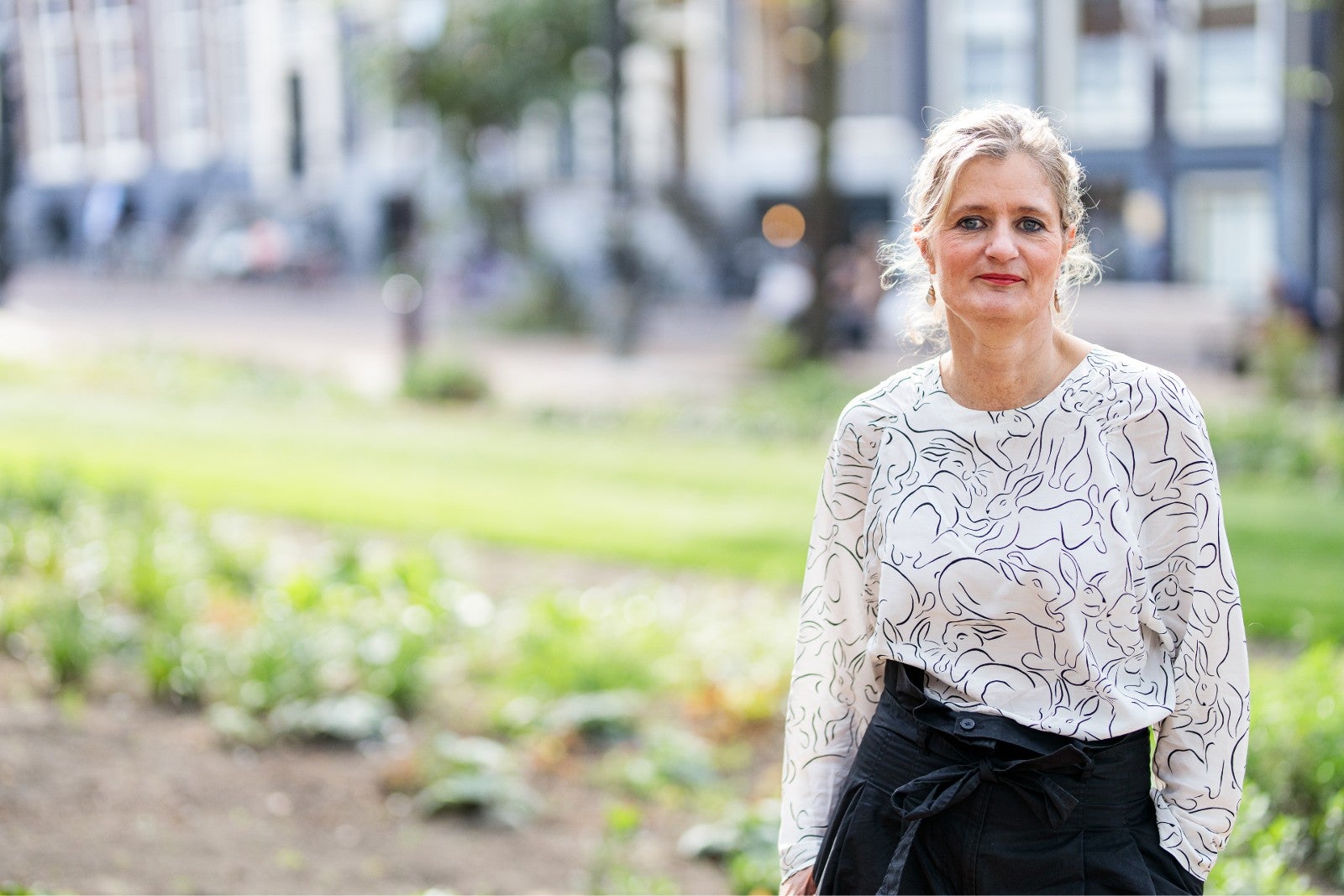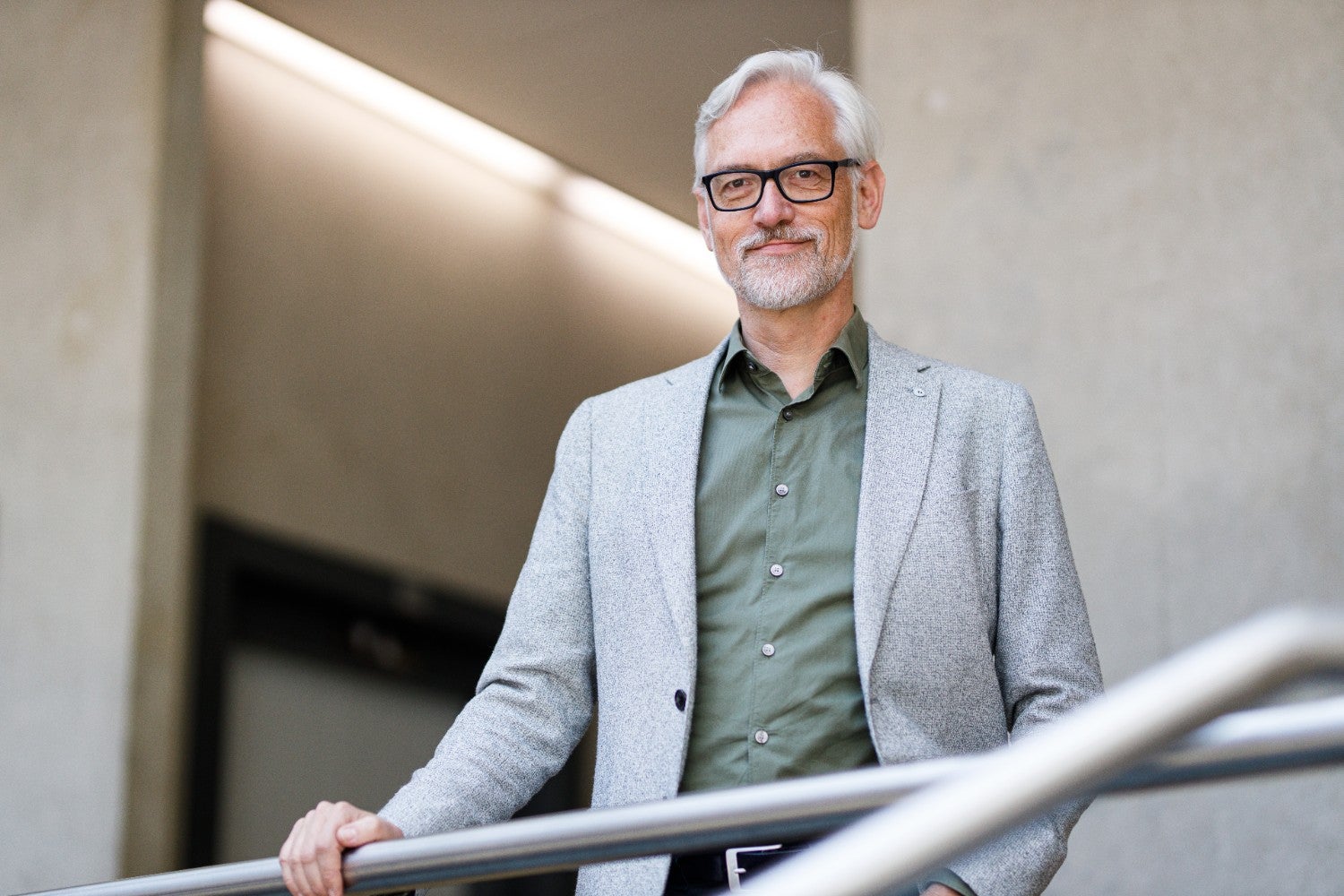Rowan Blijd (32) studied Comparative Arts and Media studies at VU Amsterdam and now discusses topical issues as a media maker. Last week, the moving documentary, Silent Life about her stillborn son Amari, was released.
In 2019, you gave birth to a stillborn son, Amari. When did you have the idea that you wanted to do something with this devastating loss?
„During a check-up a few weeks after giving birth, I asked the doctors if they would work with me if I ever wanted to do something with this experience. I wrote a lot about what I was experiencing, afraid that I would forget the details."
„It was also because I couldn’t find much on the subject. When it had just happened, I sat on the sofa with my partner and we looked for stories about people in similar situations. I found stories in English, but not in Dutch."
„Offline, lots of people approached us, people who had experienced the same thing, but I wasn’t aware that they had. People don’t know how to talk about it. I have first-hand experience that it can happen, so why should we hide it? That is one of the dark sides of falling pregnant, one that we don’t talk about. The consensus is that we approach pregnancies as something joyful. It doesn’t have to be a sombre topic. But it does have to be realistic."
Why do you think stories like this are covered up?
„I think it has something to do with shame. You feel ashamed that everyone seems to be having healthy children except you. You lose faith in your body. In many cultures, people also find it difficult to talk about the less pleasant things in life, particularly where death is concerned."
„You also have to bear in mind that for a long time in the Netherlands, parents of stillborn babies were not allowed to see the baby, give it a name, or register it in the personal records database. Water under the bridge, we’re not going to talk about it any more, have another baby, just like that."
Was it hard for you to open up and be vulnerable?
„No, talking about difficult things comes naturally to me. I wanted to share my story, I wanted it to be out there. It was only shortly before the deadline that I panicked. What would people think? The biggest difficulty for me was seeing pictures of myself when I was carefree and pregnant. I saw myself back at the baby shower as a naive, happy girl whose only concern was how I was going to combine my career with motherhood."
„I don’t get wound up about those sorts of things any more, not like I used to. And the loss brought me more than that. Sometimes I tackle something enthusiastically, and then find it difficult to finish it. When things get tough, I put it to one side for a while, rather than press on and be done with it. Over the past two years, I have learnt to keep going anyway, to persevere, and now I can see what great things it brings. A documentary. A new job."

You studied Comparative Arts and Media at VU Amsterdam. Was that study in line with your work as a media maker?
„Definitely, creating media was very much encouraged. In our final year, we had to make a documentary. So we had to learn to edit it ourselves, become acquainted with the art of storytelling. There was also room for internships. I did mine at SBS Shownieuws. What shaped me the most were those of my teachers who were involved in society, and had their finger on the pulse. That sparked something in me that makes me try to include current affairs in what I do. I started by making YouTube videos on topics that I couldn’t find, such as tutorials for frizzy hair. Later, I made a video about #benniebeige, in which I broached the subject that I couldn’t find underwear or tights that matched my skin colour. Politicians and Dutch celebrities signed the pamphlet."
Did the video help?
„Absolutely. To start with, clothing brands and media ridiculed the notion and were cynical about it. Once it took off, however, I received invitations from ready-to-wear clothing shops that all of a sudden wanted to sell skin-coloured underwear in all colours. Suddenly everything was possible."
You are a board member of the Dutch Union of Journalists. What made you decide to do that?
„Initially I wanted to do more about the working conditions for people embarking on their careers. I realised that there were people just starting out who could do a whole range of things: writing texts, photo editing, social media. For instance, I had been writing blogs and making videos as a hobby. But because their range of skills don’t match traditional job descriptions, they are underestimated and underpaid. I also allowed myself to be employed at a grade at the broadcasting company that was too low for me."
„I’ve since changed direction and nowadays I focus on the position of women in journalism. Recommendations have been made in various European countries to develop policies specifically for this group. For example, special training for agents so they can learn how to deal with complaints lodged by female creators. More data needs to be gathered about female journalists and creators, and used to make properly informed decisions regarding the policies implemented on their behalf."
What issues do you encounter as a woman?
„Personally, I have often been approached on the basis of my gender or skin colour, or both. And I see that happen often enough among my fellow media makers. For instance, a person of colour started working at a broadcasting company in Amsterdam and was sent to the Bijlmer, even though they came from a rural village in the east of the Netherlands. It’s all very well to employ people and then think: we’re a diverse company now. But you also have to be an inclusive company, one which lets people be completely themselves."
„I know an awful lot about online media, video and social media, and I’m more than just my skin colour, so I speak out when I’m faced with these kinds of issues. I’m very well aware that I am part of a group and that, by speaking out, I can pave the way for those who come after me. Just as the people who went before me and who spoke out, and from whose efforts I now reap the benefits."








